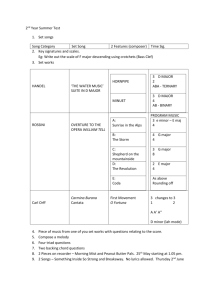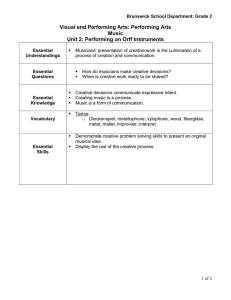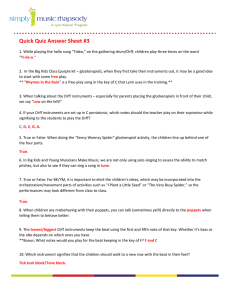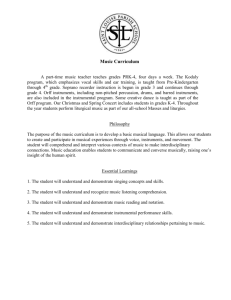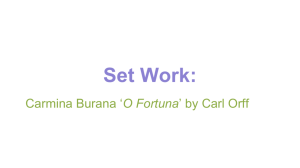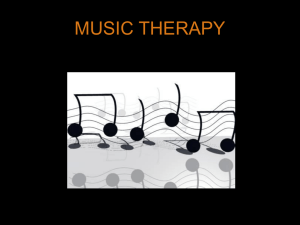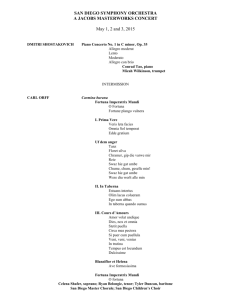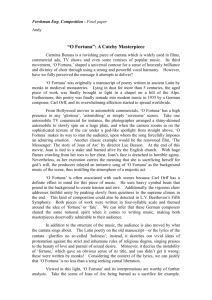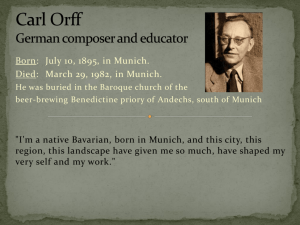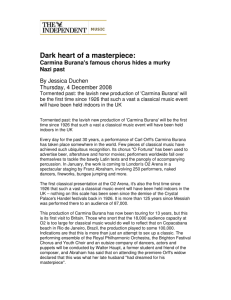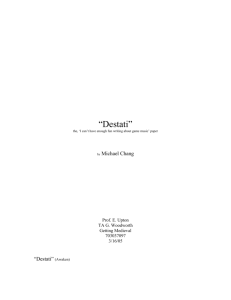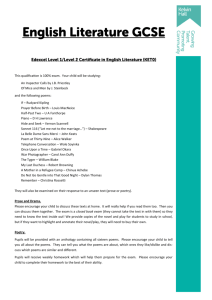Composer
advertisement
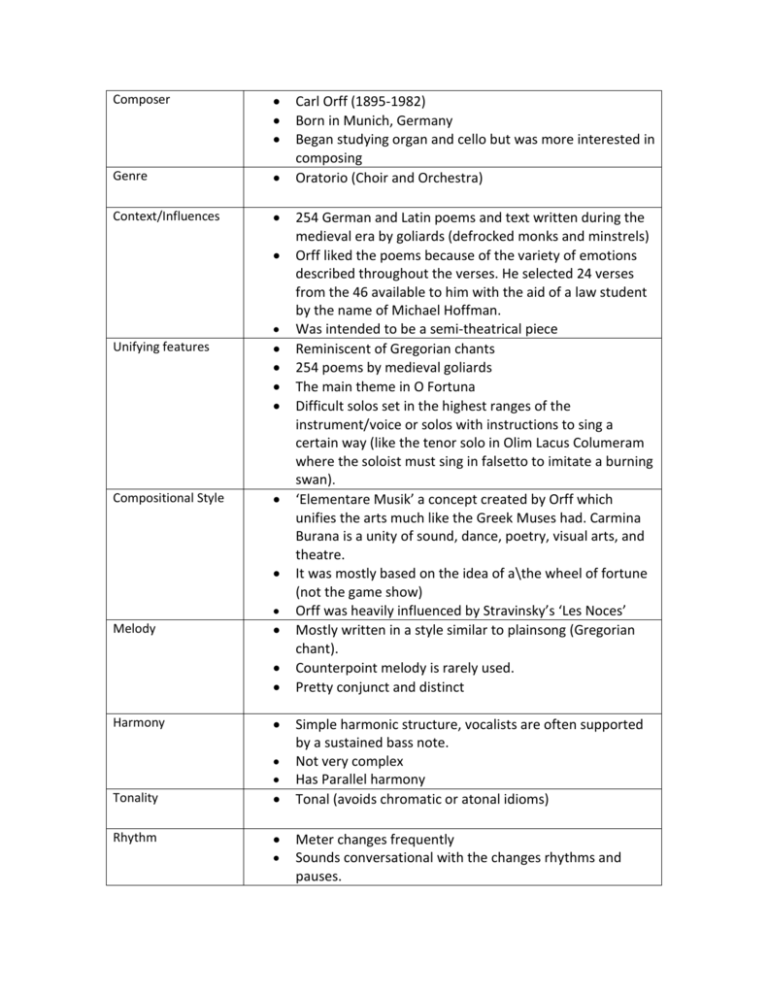
Composer Genre Context/Influences Unifying features Compositional Style Melody Harmony Tonality Rhythm Carl Orff (1895-1982) Born in Munich, Germany Began studying organ and cello but was more interested in composing Oratorio (Choir and Orchestra) 254 German and Latin poems and text written during the medieval era by goliards (defrocked monks and minstrels) Orff liked the poems because of the variety of emotions described throughout the verses. He selected 24 verses from the 46 available to him with the aid of a law student by the name of Michael Hoffman. Was intended to be a semi-theatrical piece Reminiscent of Gregorian chants 254 poems by medieval goliards The main theme in O Fortuna Difficult solos set in the highest ranges of the instrument/voice or solos with instructions to sing a certain way (like the tenor solo in Olim Lacus Columeram where the soloist must sing in falsetto to imitate a burning swan). ‘Elementare Musik’ a concept created by Orff which unifies the arts much like the Greek Muses had. Carmina Burana is a unity of sound, dance, poetry, visual arts, and theatre. It was mostly based on the idea of a\the wheel of fortune (not the game show) Orff was heavily influenced by Stravinsky’s ‘Les Noces’ Mostly written in a style similar to plainsong (Gregorian chant). Counterpoint melody is rarely used. Pretty conjunct and distinct Simple harmonic structure, vocalists are often supported by a sustained bass note. Not very complex Has Parallel harmony Tonal (avoids chromatic or atonal idioms) Meter changes frequently Sounds conversational with the changes rhythms and pauses. Form Ostinato is frequently used Carmina Burana is divided into five major sections and contains 25 movements in total (O Fortuna opens and closes the piece). Is divided into three main scenes: the joy of spring, drinking, and love. The movements within each scene are marked with an attacca. Homophonic Parallel Organum In O Fortuna, the timbre is almost barbaric at times. In other movements it sounds very sweet and rich. Huge dynamic contrast Texture Timbre Expression
